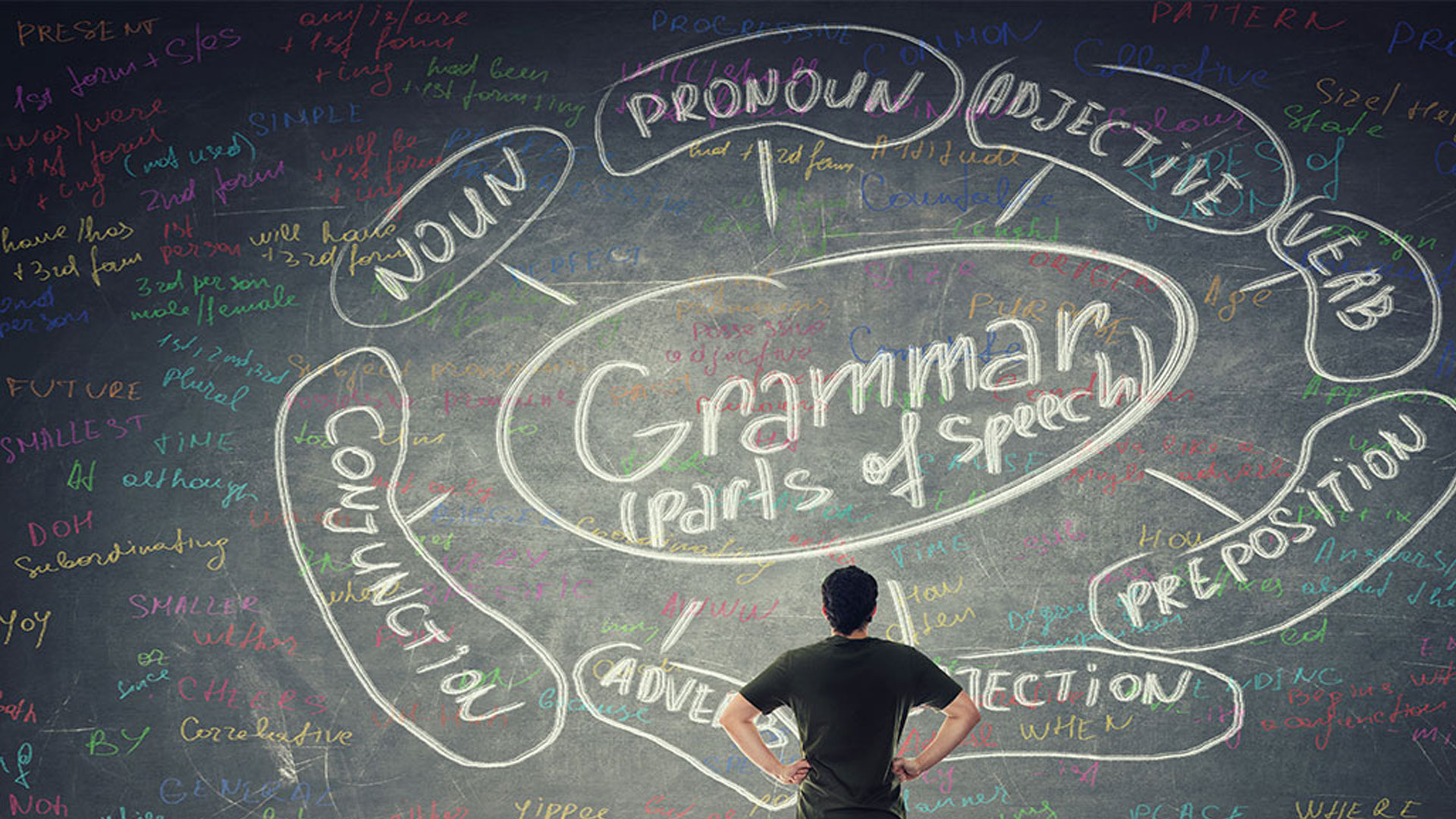Do we need grammar?
My first thought when somebody asks the question do we need grammar? is “of course we do, what are you talking about?” Still, bitter experience has taught me that easy answers are not necessarily, or even usually, correct, especially when the question itself is ambiguous, so I then go on to consider the question more carefully.
By George Vassilakis, Teacher Trainer
If the question is taken to mean “do we need to teach grammar explicitly,” then the jury seems to have been out for at least a few decades; far from coming up with a simple, direct answer, psycholinguistic research seems to be simultaneously supporting both that we need grammar and that we don’t need it (see, for example, Ellis 2015). Nevertheless, there will always be those for whom, in the words of Henry Widdowson (1985, p. 161) “the delusion of simple answers will always be available as an attractive alternative to thought.” Thus, the dogmatic certainty of some, even today, that we should (at last!) do away with grammar can only compare to the certainty of others, more than a hundred years ago, that explicit study of grammar rules is the only way in which we can learn a foreign language. It seems to me that they are both wrong, not (just) because the truth is usually in the “middle ground” between two extremes, but because the question itself is problematic.
Reframing the question
A question like “do we need grammar?” is actually not just problematic, but quite meaningless if we haven’t defined what we mean by grammar, who ‘we’ refers to and what “we” might need grammar for. Thus, the answers I might give to the question would be very different in each of the following cases:
- whether ‘we’ refers to language learners or language teachers
- whether by ‘grammar’ we mean explicit, declarative knowledge or implicit, procedural knowledge of the grammar rules
- whether we ‘need’ grammar for interaction in basic everyday communication contexts or in order to write an article, a short story or a poem or in order to teach the language
Do teachers need grammar?
As a language teacher educator, I think I can understand why I am inclined to defend grammar: I am thinking of language teachers rather than learners, and the need for them to possess declarative, not just procedural, knowledge of grammar, so that they can compose fully accurate models of language for their students and so that they can make informed decisions about how much (or how little!) grammar instruction their students need and what form this grammar instruction should take depending on the type of learners, their level and their learning purpose. In other words, what I am inclined to claim is that foreign language teachers need detailed, explicit knowledge of grammar even if they choose not to teach grammar explicitly in all cases.
Why do teachers need grammar?
In fact, knowledge of grammar (and yes, I mean declarative knowledge of the grammar rules) is a prerequisite for teaching the language even if the teacher has chosen not to teach grammar explicitly. To be precise, if they have chosen not to teach grammar explicitly, it may be even more imperative that the teacher should know their grammar. Here is why:
- They can select what kind of language to include in the models they provide, so that the models do not confuse the learners and make clear and obvious the meaning and use of the structures they exemplify.
- They can select appropriate contexts for the structures in focus, that is contexts which naturally invite the use of the structure and which make the meaning and use very clear without the need to resort to explanation.
- They can devise appropriate, i.e. clear and simple, checking questions to ensure that the learners have understood the forms and meanings in focus even if no explicit presentation of the rules is provided.
- They can anticipate what problems the learners might have and devise appropriate tasks and activities to help learners overcome these problems.
- They can plan what to say if learners should ask the question most teachers dread: “why do we say it like that?”
Dismissing grammar and grammar teaching altogether on the grounds that explicit study of the grammar rules is not useful or not appropriate in a particular context makes little sense. At best, it’s based on a logical leap: explicit grammar teaching can be ineffective, therefore let’s not teach grammar at all; or worse, let’s not even bother to find out what grammar and grammar teaching involves. Beheading the patient may be a radical cure for headache, but let’s not forget it inevitably results in the patient’s death.
References
Ellis, N. (2015). Implicit AND Explicit Language Learning .Their dynamic interface and complexity. In P. Rebuschat (ed.), Implicit and Explicit Learning of Languages (pp. 3- 23). Michigan: John Benjamins Publishing Company.
Widdowson, H. G. (1985). Against dogma: a reply to Michael Swan. ELT Journal 39, 1985, pp. 158-161
